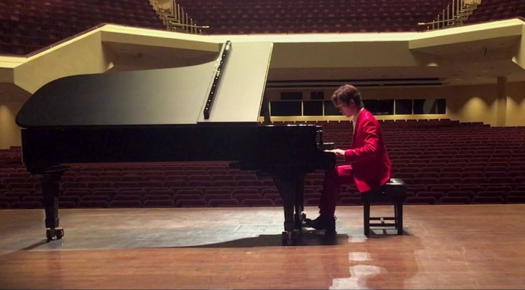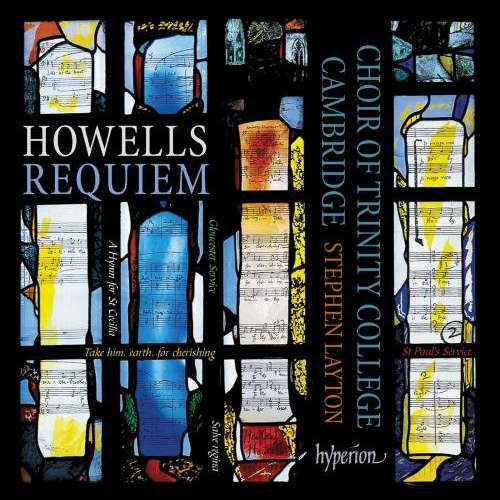- Lord Berners
- Márta Kinsker
- viola
- Nikolai Roslavets
- Siegfried Idyll
- Pentatone Classics
- Robert Atchison
- Andrew Dawes
Astonishing Control
MIKE WHEELER experiences
a completely transfixed audience at
Chinese-born pianist Ji Liu's recital of music by
Stephen Hough, Debussy, Ji Liu, Beethoven,
York Bowen and Stravinsky
Chinese-born Ji Liu has become a regular visitor to the Sunday morning piano recitals at Nottingham's Royal Concert Hall. He launched the new season - Nottingham, UK, 6 October 2019 - with a programme permeated in places by the spirit of Debussy, beginning with Stephen Hough's Nocturne Oriental, which he commissioned. It put down a marker for much of his recital, demonstrating his astonishing control at the very lowest dynamic levels. He told us the piece contained sixteen Chopin quotations, but I'm afraid they passed me by. It was the shades of early Debussy that seemed to stand out more, so it was no great distance from there to Book 1 of Debussy's Images.

Ji Liu (born Shanghai, 1990)
Liu's subtlety of touch in the shifting patterns of 'Reflets dans l'Eau' suggested an outstanding Debussy pianist in the making. Amid the grave serenity of 'Hommage à Rameau', he teased out the sublimated baroque dance at its heart. And the whirligig at the centre of 'Mouvement' was delivered with an infallibly even tone. I have rarely experienced an audience at one of these recitals so completely transfixed.
In his own Etude No 1, the stream of left-hand arpeggios inevitably suggested minimalist influence, but also a link to the last of the Debussy Images we'd just heard.
The centrepiece was Beethoven's 'Waldstein' Sonata, Op 53. The opening was played, for once, at the pianissimo level Beethoven asked for. Liu went on to follow Beethoven into some very secretive places, not least in the meditative short second movement, and steered the finale from tranquillity to big statement without faltering. Just occasionally the performance threatened to lose momentum, but there was no sense of the coda, taken very fast, being merely tacked on.
York Bowen has been steadily attracting renewed attention in recent years. His 1913 Reverie d'Amour sits somewhere between Debussy and Rachmaninov, with hints of popular song from a couple of decades later. Liu blended all these ingredients in a tranquil reading that avoided any hint of self-indulgence, and allowed Guido Agosti's transcription of three movements from Stravinsky's The Firebird to erupt with full force in its wake. In the Infernal Dance Liu allowed himself a little too much rubato in places, though he was incisive elsewhere. He produced an aptly drowsy account of the Lullaby, and showed an impressive control of simultaneous dynamic levels in the Finale.
Copyright © 14 October 2019
Mike Wheeler,
Derby UK





